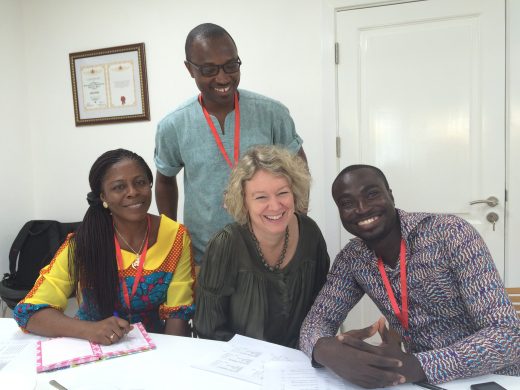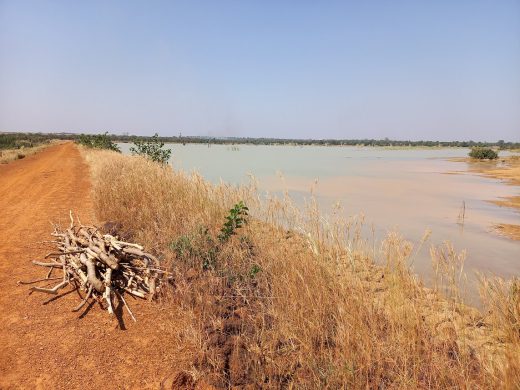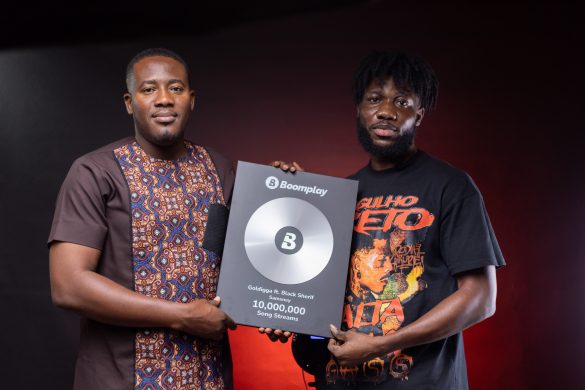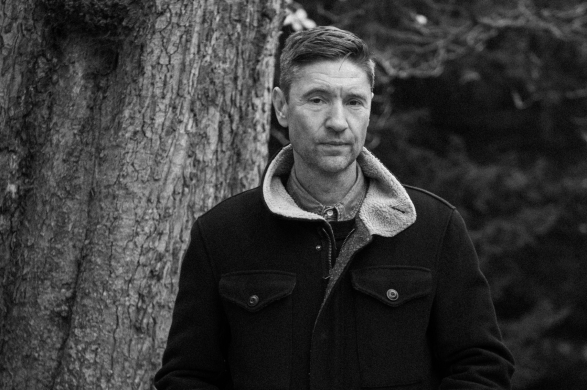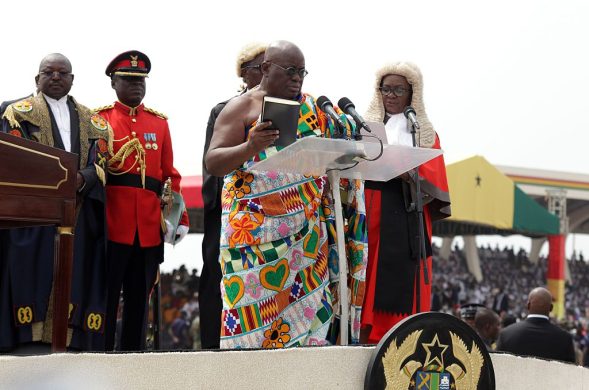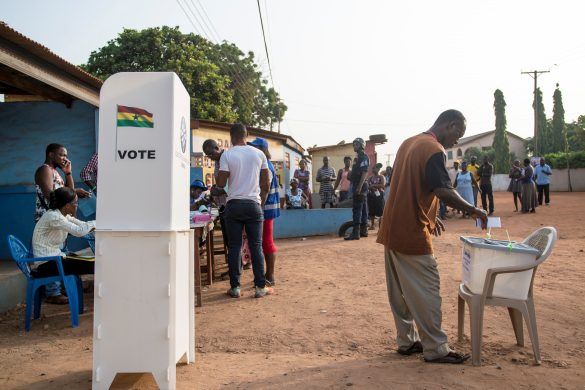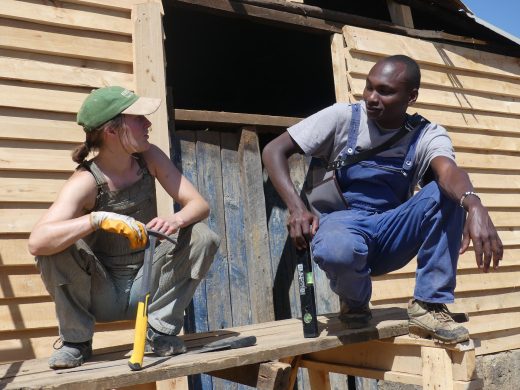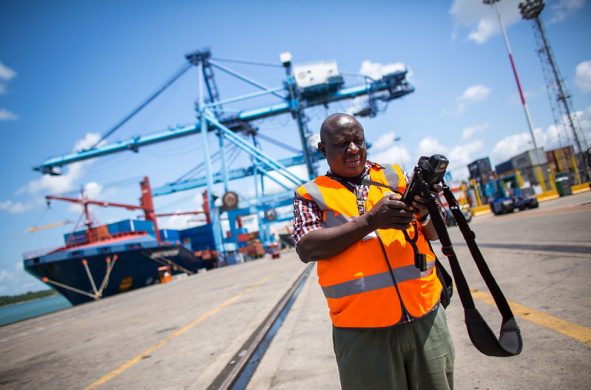When Tove Degnbol was appointed Danish Ambassador to Ghana in September 2015, she happily promised to facilitate the establishment of a Danida Alumni in Ghana as a pilot project.
To set up a Danida Alumni network simply made sense, Tove Degnbol says over Skype from her office at the Danish Embassy in Accra. She elaborates:
“We have 2000 Master students and PhDs from all over the world, who have received their education in Denmark. It is a group of highly skilled people. They are familiar with our country, our language and our culture. They know how we perceive things and they easily communicate with us. There is a mutual understanding, trust and appreciation. Many of them occupy decision-making positions in both government organisations and in private companies. To me they are obvious ambassadors and facilitators in relations between Danes and our international partners because they can bridge cultures and connect people. So I happily volunteered to pilot an alumni network in Ghana,” she says.
Where did you hide these people!
Upon arrival in Ghana Tove Degnbol soon put her promise into action. By January 2016 the Danida Ghana Alumni was established with a council board of five previous Danida Fellows. Shortly after they were introduced to the Danish business community in Accra.
The reception was overwhelmingly positive. Tove Degnbol raises her voice with enthusiasm when she recalls the event. She recalls the words from a representative of one of the Danish companies: Where did you hide these people for all this long.
She explains how this positive reaction illustrates the generally encouraging feedback from the Danish business community in Ghana towards the Alumni network.
The Danish business community in Ghana knows first hand that cultural challenges are inevitable when entering or operating at a new or foreign market.
They welcome the alumni because they see obvious advantages in collaborating with technically competent people, who have strong in-country networks and who can bridge between the two cultures, says Tove Degnbol, who in her previous position as Head of the Technical Advisory Service at Danish Ministry of Foreign affairs endorsed the Danida Alumni initiative from its very beginning.
Ghana gains
For Ghana the alumni network equally has advantages, according to the Ambassador. Ghana has a clear policy of attracting foreign investments. Whenever an alumnus assists a Danish company to overcome the hurdles of entering a new market and to invest in Ghana, it benefits both countries.
If the alumni inspire trust in Danish companies and thereby make it easier for them to invest in Ghana, then it is obviously of interest to Ghana. In that respect the Danida Alumni has a double role of spanning the interests of both countries, she says.
Cutting edge heart hospital in Accra
Tove Degnbol refers to a new heart hospital project in Accra as a concrete example of how one of the previous Master student of International/Global Health educated in Denmark facilitated common interests between Ghana and Denmark.
Heart diseases are markedly increasing in Ghana and Ghanaian health facilities do not have the capacity to deliver effective treatment of highest international standards to all patients. As a result, more people suffer from these diseases and an increasing number of wealthy Ghanaians travel to India, Dubai and elsewhere to get treatment.
On that background a group of Danish investors and heart surgeons are exploring the possibilities of setting up a cutting edge private heart hospital with 300 beds in Accra. The idea is that well-off Ghanaians will get access to treatment for cardiac diseases in Ghana rather than traveling abroad. This will at the same time cover for some services for poorer Ghanaians with heart issues.
To do the initial feasibly study of the project, the international consultancy company Niras was hired. Niras employed Ghanaian Julian Adinkrah. He is one of the 200 Ghanaians who have done a professional Master in International/Global Health at University.
Julian Adinkrah’s extensive network in the Ghanaian health sector and his relatively easy access to relevant government authorities combined with his technical background in medical science played an important role for the feasibility study, Tove Degnbol says, obviously pleased with the new project plans.
From aid to trade
She explains that Denmark’s development cooperation with Ghana is being phased out and ends by 2020. By then it will give way for a more trade and political-oriented collaboration between the two countries. As part of the transition from aid to trade, Denmark will conclude its 22 years longstanding development support to the Ghanaian Health Sector by the end of 2016. In that light, Tove Degnbol sees the private heart hospital project and other Danish private interests as a continuation of the Danish involvement in the health sector, but on new premises.
It is exciting and encouraging that even when we close the health sector chapter of our development cooperation with Ghana, we can still draw on our network and our contacts. We can still influence the development in the health sector through dialogue, but now based on commercial activities, she says.
Advisors in green energy and climate change
Denmark’s development cooperation to support private sector development in Ghana will continue to the end of 2020. The Ambassador sees the skills of the alumni coming into play as advisors in the areas of green energy, climate change and energy efficiency.
But it is clear that she believes that the gain of the alumni primarily lies in the two countries business and trade collaboration. She stresses that Denmark shouldn’t be blind to the added technical value that students and researchers from abroad bring into play at the Danish universities and thereby to the private sector.
Better tasting chocolate
ove Degnbol mentions Margaret Owesu as an example of a brilliant Ghanaian researcher.
Owesu did her PhD in Food Science at the Faculty of Science, University of Copenhagen and in cooperation with the Danish Chocolate Company Toms.
Margaret Owesu investigated different methods of cocoa fermentation. She found a way to improve the taste of chocolate by spreading the cocoa out on wooden trays. It gave a more even fermentation and better tasting result. Today Toms uses her methods, says Ambassador Tove Degnbol, who admits that her expectations to Danida Ghana alumni are high.
By September 2016 the Council Board of the Alumni will present its activity plans of how to bridge cultures and connect people for the years to come.
Vibeke Quaade, Senior Communications Advisor specialised in international development, helps Danida Fellowship Centre setting up Danida Alumni. Email: vibeke.quaade@gmail.com, www.vibekequaade.com

